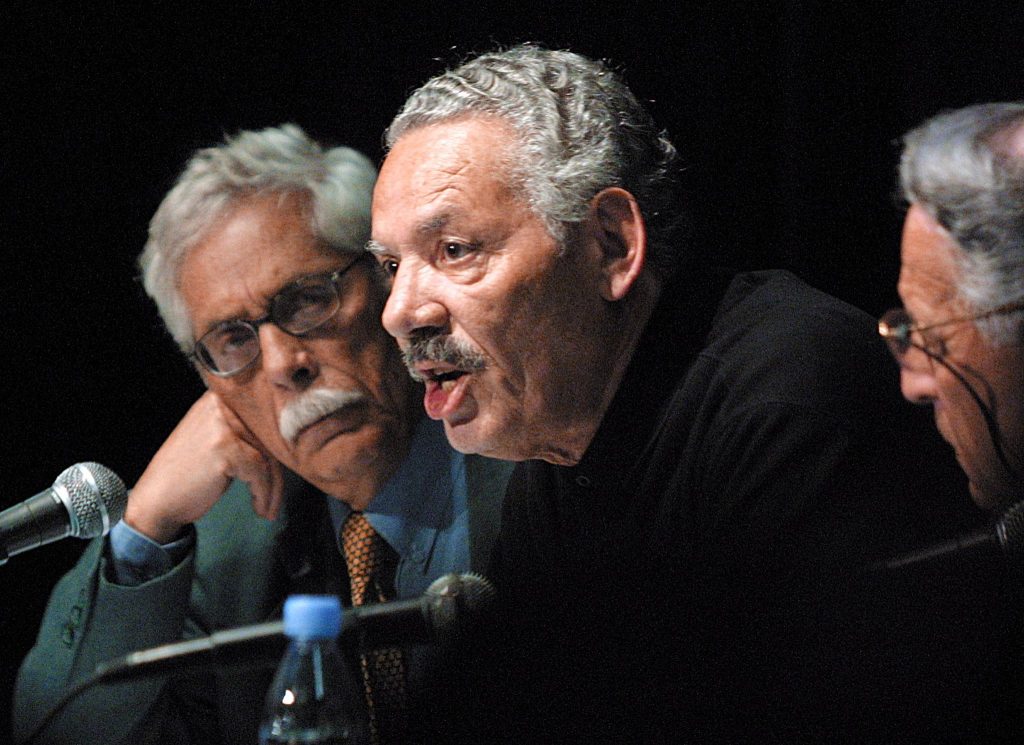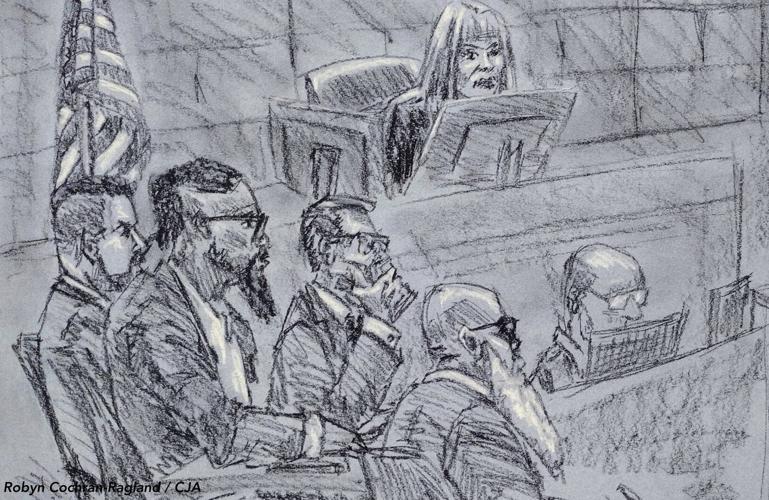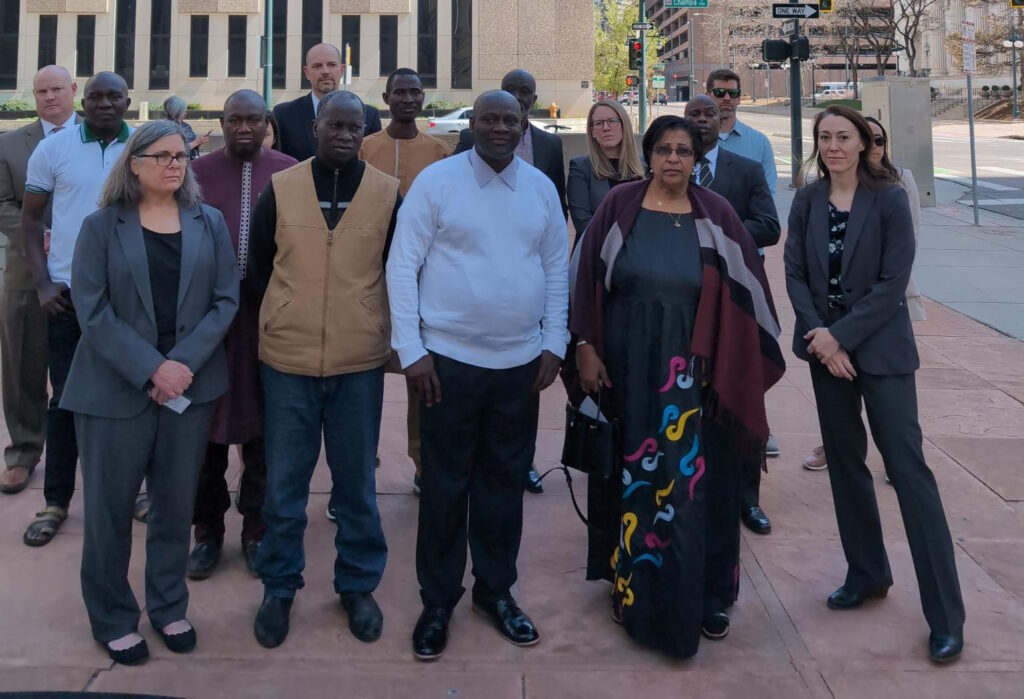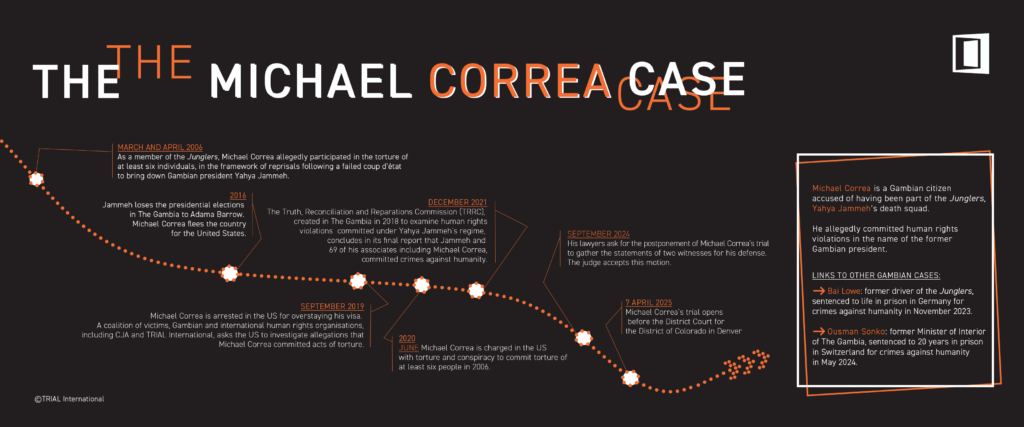Enforced Disappearance of Danda Pani Neupane in May 1999
The Case
In May 2012, TRIAL submitted an individual communication to the United Nations Human Rights Committee regarding the enforced disappearance of Danda Pani Neupane in May 1999. In this communication, TRIAL also represents the victim’s wife, Mrs. Shanta Neupane and his daughter, Ms. Nisha Neupane.
Mr. Neupane had been an active member of the then Communist Party of Nepal – Maoist (UCPN-M) since the party’s inception in 1985. He was imprisoned three times in the 1970’s during the Panchayat period (from 1962 to 1990) for involvement in political activities, which were illegal at the time. He was arrested first in 1972 for five days, in 1973 for 10 days and finally in 1975 for eight months. At the time of his arbitrary arrest and subsequent disappearance, Mr. Danda Pani Neupane was a Central Committe member of the CPN-M and head of the party’s publication department. As a high-level member of the CPN-M, Mr. Neupane went underground following the onset of the “people’s war” in 1996 in order to avoid arrest by the police.
Two eye-witnesses reported that Mr. Neupane was stopped by four uniformed policemen in Sundhara, near Tebahal, Kathmandu at approximately 17:30 hrs on 21 May 1999. He was reportedly put into a van with five or six other uniformed policemen before being driven to an unknown destination. In June 1999, a policeman from the same Village Development Committee (VDC) as Mr. Neupane who was temporarily stationed at the Nepal Police training centre in Maharajgunj, Kathmandu, reportedly witnessed Mr. Neupane being held in police custody inside the training centre for a period of approximately one month. This was the last time that Mr. Neupane was reportedly seen, alive or dead. Mrs. Neupane has had no contact with her husband for thirteen years.
The family of Mr. Danda Pani Neupane took a number of steps to try and locate him. Mrs. Neupane visited the Kathmandu District Police Office (DPO), Hanumandhoka on 25 May 1999 in an attempt to locate her husband, although police personnel at the DPO refused to hand over clean clothes and medicine to Mr. Neupane on the ground that he had never been arrested nor held in police custody there. Between 26 and 30 May 1999, Mrs. Neupane visited the three main jails in Kathmandu: the Central Jail, Nakhu Jail and Charkhal Jail, but she was similarly told by the prison authorities that Mr. Neupane had never been arrested or detained.
Having failed to locate her husband, Mrs. Neupane filed a habeas corpus writ before the Supreme Court on 26 May 1999. The Supreme Court quashed the habeas corpus writ on 12 July 1999, reasoning that as the defendants (the Home Ministry; the Nepal Police headquarters, Naxal, Kathmandu; the District Administration Office, Kathmandu; and the District Police Office, Hannumandhoka, Kathmandu) denied holding Mr. Neupane, his status could not be determined, thereby rendering the habeas corpus writ inapplicable. Mrs. Neupane filed a second habeas corpus writ before the Supreme Court on 17 August 1999. The writ was quashed by the Supreme Court on 5 July 2000 with a similar reasoning.
The family of Mr. Neupane also took a number of non-legal measures in an attempt to uncover information about his fate and whereabouts. On 14 June 1999, the family of Mr. Neupane and six other victims of enforced disappeared held a press conference and issued an appeal requesting the general public and government authorities to come forward if they had any information regarding Mr. Neupane. On 20 June 1999, the family of Mr. Neupane submitted a written appeal to the Parliament requesting that the whereabouts of Mr. Neupane and fifteen other disappeared individuals be made public and that they be immediately released from police custody. Mrs. Neupane also contacted Amnesty International (AI) in July 1999 and informed the organisation about her husband’s disappearance. AI issued two urgent action appeals in response to Mrs. Neupane’s request for assistance: the first on 13 August 1999 and the second in February 2000. On 20 September 1999, the Families of Victims of State Disappearance Association (FVSDA), co-founded by Mrs. Neupane, handed over a written appeal to the Prime Minister. On the same date, the FVSDA released a press statement requesting again that Mr. Neupane and other disappeared individuals’ whereabouts be made public and that they immediately be released from police custody.
Apart from minimal interim compensation of NRs. 100,000 (890 Euros) received in 2008, the family of Mr. Neupane has received neither truth nor justice nor adequate reparations from the Government of Nepal for the tragic loss of their loved one.
In May 2012, TRIAL submitted an individual communication to the United Nations Human Rights Committee requesting it to:
- recognise that the State of Nepal has violated numerous articles of theInternational Covenant on Civil and Political Rights due to Mr. Neupane’s enforced disappearance, the ongoing failure of Nepalese authorities to conduct an effective investigation and prosecution of the crime and the ensuing suffering endured by Mr. Neupane’s spouse and daughter owing to the disappearance of their loved one;
- request that the State of Nepal initiate a thorough and independent investigation into the arbitrary deprivation of liberty and enforced disappearance of Mr. Danda Pani Neupane and, in the event of his death, the localization, exhumation, identification and restitution of his mortal remains to the family;
- request that the State of Nepal investigate, prosecute and punish those responsible for Mr. Neupane’s disappearance;
- request that the State of Nepal immediately suspend from office all Nepal Police personnel against whom there is prima facie evidence that they were involved in the enforced disappearance of Mr. Danda Pani Neupane pending the outcome of investigations against them;
- request that the State of Nepal ensure that the authors obtain prompt, fair and adequate compensation covering both material and moral damages and that measures of reparation adopted in their favour incorporate measures aiming at providing restitution, rehabilitation, satisfaction (including restoration of dignity and reputation) and guarantees of non-repetition.
The Decision
On 21 July 2017 the UN Human Rights Committee issued a decision on the case, finding Nepal responsible for the violation of several provisions of the International Covenant on Civil and Political Rights, including the right to life, the prohibition of torture, the right to personal liberty and the right to recognition as a person before the law in respect of Mr. Danda Neupane. The Committee also found that the wife and the minor daughter of Mr. Neupane are victims of inhuman and degrading treatment because of the lack of information on the fate and whereabouts of their loved one and the ensuing anguish and suffering.
The Committee requested Nepal to:
- Conduct a thorough investigation into the disappearance of Mr. Neupane and, in the case of his death, locate his remains and hand them over to his family;
- Prosecute, try and punish those responsible for the crimes committed against Mr. Neupane;
- Provide the wife and the minor daughter of Mr. Neupane with adequate compensation and measures of satisfaction;
- Provide the wife and the minor daughter of Mr. Neupane with the necessary psychological rehabilitation and medical care;
- Prevent similar violations in the future and ensure that domestic legislation allows for the criminal prosecution of those responsible for torture and enforced disappearance; and any enforced disappearance gives rise to a prompt and thorough investigation.
Nepal has now 180 days to inform the Committee about the measures taken to implement this decision.
General context
The enforced disappearance of Mr. Neupane is part of the context of internal armed conflict which Nepal has experienced between February 1996, when the Communist Party of Nepal (Maoist) overtly declared war against the official governmental authorities of Nepal, and November 2006, when the different parties to the conflict signed the Comprehensive Peace Agreement sanctioning a formal end to hostilities. The decade long armed conflict from 1996-2006 caused not only severe economic and social damages in Nepal but also put the country’s name in the list of the top human rights violators worldwide. The recourse to enforced disappearances, torture, summary executions and arbitrary detentions by State agents and Maoists was generalized during this period.
Despite the signature of a peace agreement between the Maoists and the government in November 2006, the authorities have failed to initiate any serious investigations into the crimes perpetrated during the war and not a single perpetrator has been convicted to date. As a result, over five years after the conclusion of the conflict, perpetrators still enjoy absolute immunity from prosecution, while victims continue to be denied their fundamental rights to truth, justice and reparations.









